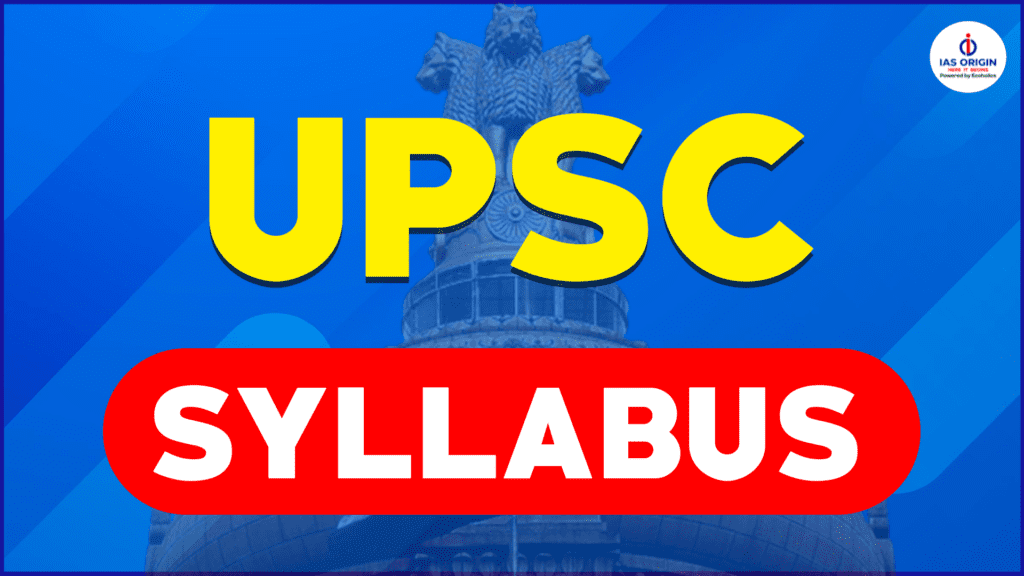
What not to Do in UPSC Preparation: Eight Avoidable Mistakes
- UPSC CSE preparation involves a lot of hard work, persistence and perseverance.
- Aspirants must avoid these eight mistakes to improve their chances of success.
Knowing what not to do in UPSC Preparation is equally important as knowing what to do to crack the examination. Do you know about the avoidable mistakes? Data suggest that nearly 10 00,000 aspirants fill out the form for UPSC Prelims every year, but only about 100 to 120 successful candidates cross the gates of LBSNAA. Why do only about 0.01% succeed while 99.9% fail?
The main reason for this minuscule selection percentage is the limited availability of seats and the intense toughness of the examination. You must have heard about many strategies or methodologies that promise success in the Union Public Service Commission Civil Service Examination. They point out the right things to do, but somehow, they need to point out the avoidable mistakes.
Related Read: Tips to Clear the Indian Economic Service (IES) Final Interview
Neglecting the Importance of Syllabus
The UPSC syllabus is vast and seems never-ending; aspirants need to pay more attention to some significant topics because they are hard. Some need help understanding the syllabus, while some go beyond the scope of the syllabus. Overall, these tactics showcase the neglect of the importance of syllabus.

Neglecting the syllabus leads to insufficient preparation. Without a clear understanding of the syllabus, aspiring students might spend valuable time on irrelevant topics while neglecting crucial areas. It directly leads to an imbalance in preparation, as they need to catch critical concepts and questions that could have significant weightage.
Studying beyond the scope of the syllabus will not fetch you extra marks in the examination; it would be a wasted effort. Knowing the extent of the syllabus leads to the correct prioritisation of subjects, topics, and resources. Aspirants might underestimate or overestimate the weightage of certain sections. They can pay more attention to the issues with higher mark distribution and focus excessively on less impactful ones.
When the aspirant is unsure about the extent of the syllabus, they will miss the crucial areas. It could lead to anxiety and a lack of confidence on the day of the examination. As the saying goes, “Sweat in peace, so you bleed less in War.” having a proper understanding of the syllabus could make you sweat less in the exam room.
Lack of Discipline & Consistency
It is a well-known fact that the UPSC CSE is a highly competitive examination requiring the utmost consistency and discipline. Moreover, the examination is designed to test your consistency and discipline. Lacking these traits would seriously impact the chances of becoming a successful civil servant.

Inconsistent efforts led to uneven progress and missed deadlines, and aspirants must deal with a huge pile of unfinished tasks later on. Continuing these tactics could make you cram before exams and neglect deep learning and understanding of the syllabus. This could lead to superficial knowledge and increase the chances of failure.
Indisciplined study habits make it difficult to develop proper focus and concentration. This directly hampers your ability to absorb information effectively and retain the knowledge for the long term. Remember that consistent practice is crucial for sharpening your analytical and problem-solving skills, which are essential for clearing the main examination.
During the final days of the examination, if the aspirant has not been consistent and disciplined, it could lead to last-minute cramming and sleep deprivation. It could lead to anxiety, fatigue, poor decision-making while answering, and seriously hampering the chances to clear the examination.
Ignoring Current Affairs
Current affairs are integral to the Union Public Service Commission Civil Service Examination. It also holds a dedicated section in prelims and mains and carries significant marks. Ignoring current affairs could lead to missing a substantial portion of the potential marks.

Current affairs assess the depth of your understanding of various subjects of the UPSC syllabus. It tests your knowledge of polity, economy, international relations, geography, etc. If an aspirant has ignored current affairs, their answers might need more depth and nuances, significantly limiting their ability to impress the examiner.
The UPSC CSE tests your critical thinking, analytical and problem-solving skills in the context of contemporary issues. Ignoring current affairs could weaken your ability to analyse complex situations, propose solutions and form informed opinions.
Recent events and trends influence the UPSC questions. Failing to stay updated with current affairs showcases your lack of awareness of contemporary issues. The exam syllabus also adapts to the changes in national and international landscape. Ignoring current affairs makes it challenging to keep up with evolving patterns, significantly affecting the chances of clearing the examination.
Neglecting Self Study
Nowadays, coaching institutes and study materials play an essential role in UPSC preparation; focusing on neglecting self-study could significantly hamper the chances of your success. Relying solely on external sources like coaching classes and study material leads to passive learning. You would learn the required information without critically analysing or internalising the data, resulting in superficial knowledge.

A famous myth surrounding UPSC preparation is that you can only succeed with a coaching institute. Coaching classes and study material are designed to cater for a wider audience, making it difficult to personalise the learning experience as per your individual needs and learning speed.
Coaching classes and study material provide ready-made answers and solutions. This approach could hinder the aspirant’s ability to develop critical thinking skills, independent situation analysis, and apply knowledge to new problems. It would be like memorising facts and not understanding the concepts.
Self-study is crucial for every aspirant. It allows you to understand the concepts and exam patterns and develop your technique to clear the examination. At IAS Origin, we provide comprehensive coaching to clear UPSC and a detailed self-study kit that can help. This kit is designed to help your self-study journey, helping you clear the examination.
Neglecting NCERT Books
The NCERT books are considered the go-to source for UPSC preparation because they help clear and strengthen the basics. Even if these NCERT books are only some of the determinants of success, neglecting them might affect your chances of clearing the examination.

NCERT textbooks are well known for clearly and concisely explaining the fundamental concepts. These books cover history, geography, politics, science, etc. Ignoring these books might lead to gaps in your fundamental understanding and cause difficulty in understanding complex topics. UPSC Preparation
The UPSC questions are designed in such a way that requires you to connect the dots from different subjects. NCERT books, with their holistic approach, can help you understand the interconnectedness of various concepts. With their clear and concise language, the knowledge can be used in effective answer writing.
Many UPSC aspirants use NCERT textbooks as a foundation for their preparation; neglecting them might be disadvantageous. Plus, these books are affordable and easily accessible. Ignoring these could mean losing valuable, cost-effective ways to strengthen your preparation strategy.
Not Practising Answer Writing Skills UPSC Preparation
The UPSC Mains examination is a test of your answer writing skills. Preparation is futile if an aspirant fails to acquire the knowledge to be successful. UPSC is not only about acquiring knowledge and learning the vast syllabus; it’s about communicating that knowledge within the defined constraints of the exam.

While appearing for the mains, aspirants must write precise and comprehensive answers within a limited time frame. You should practise managing your time and improving your answer-writing skills. They might go beyond the word limit or even need to explain the answer correctly. UPSC Preparation
The main answer writing format has specific expectations regarding its structure, content and style. Neglecting this practice leaves you unfamiliar with these nuances, and your answer might lead to the examiner’s expectations and miss those marks. Effective answer writing demands clarity and conciseness, and a lack of practice might lead to a lack of clear understanding of the questions.
The UPSC CSE examination is known to throw curveballs with unexpected questions and formats. With proper practice in tackling this diversity, aspirants might be able to adapt and deliver their best performance under pressure. Without adequate practice, it is difficult to understand what the question is and what the answer should be.
Neglecting Revision UPSC Preparation
UPSC syllabus is vast, and covering it as a whole is daunting, but paying attention to revision can hamper your chances of cracking the examination. The never-ending UPSC syllabus requires consistent revision to strengthen your understanding and retain information for longer.

With the revision, aspirants might gain crucial concepts and factual details, creating gaps in their knowledge during the exam. Remember, UPSC CSE assesses your expertise and aspirants’ ability to apply this to real-world scenarios. Neglecting the revision affects internalising and consolidating information, making applying your knowledge effectively during the exam challenging.
Neglecting revision might make an aspirant unsure and underprepared on the examination day. This lack of confidence directly impacts your performance and leads to anxiety, hesitation and potentially incomplete or inaccurate answers. Revision allows an aspirant to revisit previously learned material from a fresh perspective.
Regular revision leads to new connections between different concepts and deeper insights. It also helps in recalling information during the exam, eliminating pressure. Refrain from revision could lead to rushed answers and incomplete responses, and they potentially miss out on valuable marks.
Selecting Optional Subject Without Proper Strategy UPSC Preparation
Sometimes, aspirants pick an optional subject because it’s trending, under external pressure, or based on their scoring potential. However, selecting the optional subject based on these metrics might not achieve the desired results. Choosing the best optional subject is a complex process and should not be done without proper research.

If the optional subject is chosen with proper research, it can be easier for an aspirant to grasp core concepts. Another problem would be finding appropriate source material for the subject. This situation could lead to demotivation and frustration; both could be better during UPSC preparation.
Suppose an aspirant chooses an optional subject unrelated to the General Studies subject; it creates an unnecessary study burden. They have to devote more time to studying an unfamiliar subject. Many subjects have high scores, but success in those subjects depends on individual strength and preparation quality.
Aspirants must never forget that the UPSC preparation is a marathon, not a sprint. Every decision made during preparation affects the final result. There are multiple strategies that any aspirant can opt for, plus many guides on what to do to succeed in the examination. But if you commit any of the abovementioned mistakes, the chances of clearing the exam could suffer significantly.



